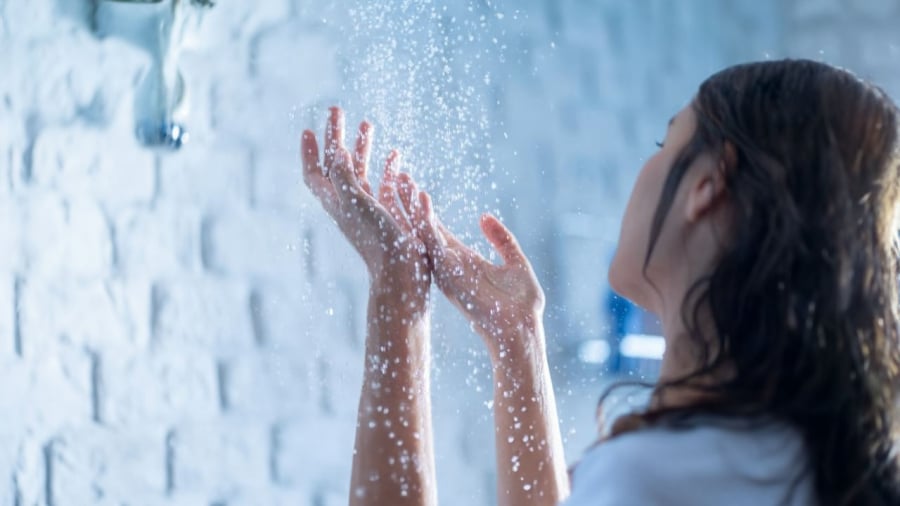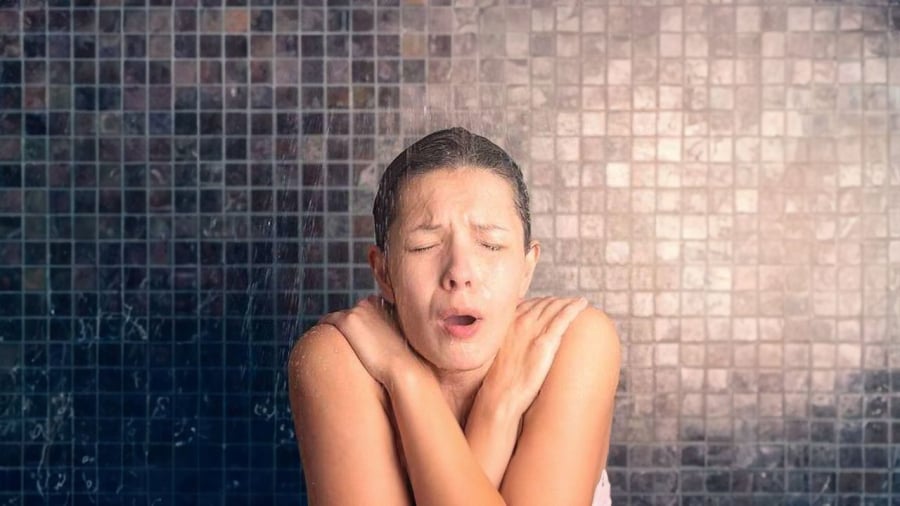Many people underestimate the importance of showering and are especially casual when it comes to bathing in cold weather. Therefore, when the weather changes, you should be very cautious while bathing as it can be life-threatening.
Bathing is a daily activity that helps cleanse the body, supports skin cleansing, and improves circulation. Showering also helps relax the body and relieve stress. For some people, taking a hot shower can provide relief for aches and pains.
However, during the winter season, bathing should be done with caution as it can affect your health. Therefore, during the winter days, you should take note of the following:

Avoid bathing too often
In cold weather, you should not shower too frequently as it can damage the skin. Showering too much can weaken your immune system and cause dry skin, leading to itching and potential bacterial infections. Bathing excessively during winter can also expose your body to cold temperatures, constricting blood vessels and increasing the risk of heart attacks.
Avoid cold or excessively hot water
Cold showers can cause a sudden drop in body temperature, leading to low blood pressure and an increased risk of heart attacks. On the other hand, taking hot showers can dry out your skin, stimulate the nervous system, and cause dilated blood vessels, which can also cause low blood pressure. Both sudden temperature changes are dangerous and have resulted in cases of fatalities, so extra caution is necessary.
Shower during the warmest time of the day
During the cold season, it is best to avoid showering in the early morning and late evening. You should shower between 9:30-10:30 am and 1-4 pm. This is especially important for the elderly to avoid the risks of low blood pressure and stroke.

Avoid showering after a full meal
Right after a meal, blood needs to flow to the stomach to aid in digestion. Therefore, showering immediately after eating can hinder the body’s adjustment process and increase the risk of heart attacks. It is also not advisable to shower while hungry, as it can cause a drop in blood sugar levels and lead to dizziness. It is best to shower 1 hour before or 2 hours after meals.
Avoid showering after consuming alcohol
Showering after consuming alcohol increases the risk of heart attacks. Alcohol consumption often leads to increased blood pressure, which makes the body more susceptible to feeling cold and increases the risk of ruptured blood vessels.
Avoid showering at night
Regardless of the season, experts advise against showering at night. During the winter, it is even more important to avoid this as showering at night can be dangerous and potentially lead to strokes or death. Additionally, showering at night can increase the risk of pneumonia and decrease lung function.
Pay attention to the correct bathing practices
During winter, it is recommended to shower in draft-free areas and avoid letting cold air into the bathroom. Prepare a towel to dry yourself immediately after showering.
Drinking a few sips of warm water before and after showering can help prevent catching a cold and ensure stable blood pressure.
If you wash your hair, it is advisable to blow-dry it immediately after showering to avoid headaches.
During winter, the skin tends to become dry after showering. Choose moisturizing shower gels and use a towel to dry your body.
When showering, wet your feet first, then pour water onto your chest and back before wetting your head. Avoid suddenly pouring water from your head.
Showering is beneficial for maintaining good health, but it can also pose risks. Therefore, it is essential to be mindful and avoid being careless.
































